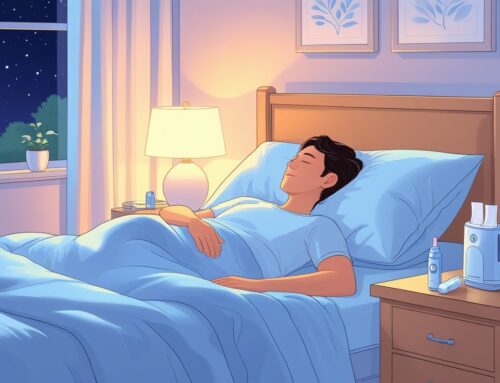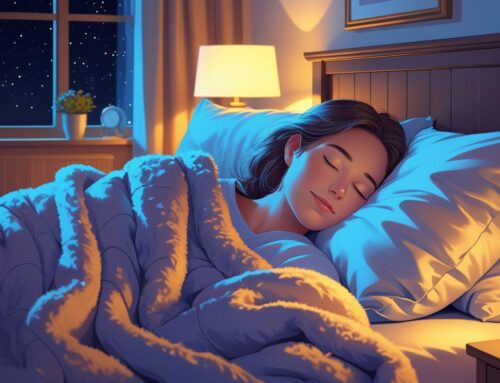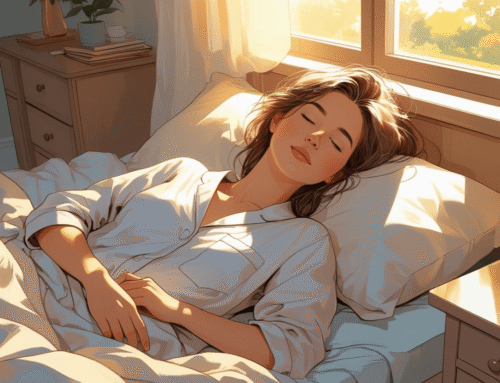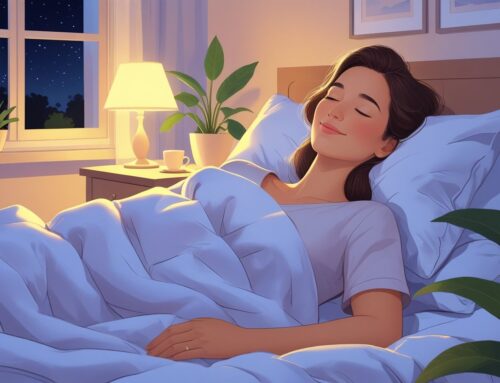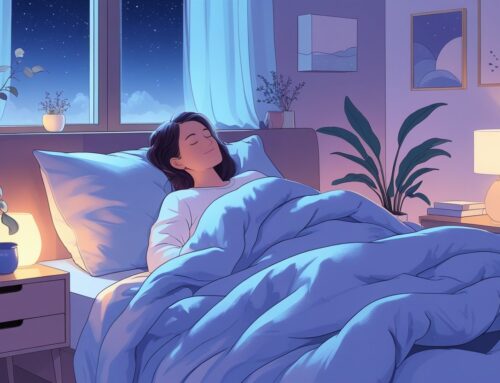Lack of sleep can cause headaches and dizziness. When a person does not get enough rest, the body and brain fail to function properly. This leads to various types of headaches, such as tension headaches or migraines, and may also result in dizziness.
Sleep deprivation weakens the brain’s ability to regulate pain and maintain balance, which explains why headaches and dizziness often occur together after a night of poor sleep. People who frequently lack sleep may notice these symptoms become more intense or happen more often.
Several factors can cause sleep disruptions, and each one may raise the chances of experiencing headaches and dizziness. Learning how sleep influences the body and following healthy sleep routines can reduce these symptoms and support better overall health.
Key Takeaways
- Missing sleep can trigger headaches and cause dizziness.
- Poor sleep disrupts the brain’s pain control and balance systems.
- Healthy sleep habits lower the risk of headaches and dizziness.
- A mattress that supports spinal alignment, relieves pressure, and regulates temperature reduces sleep-related headaches and dizziness by promoting deeper and more restorative rest.
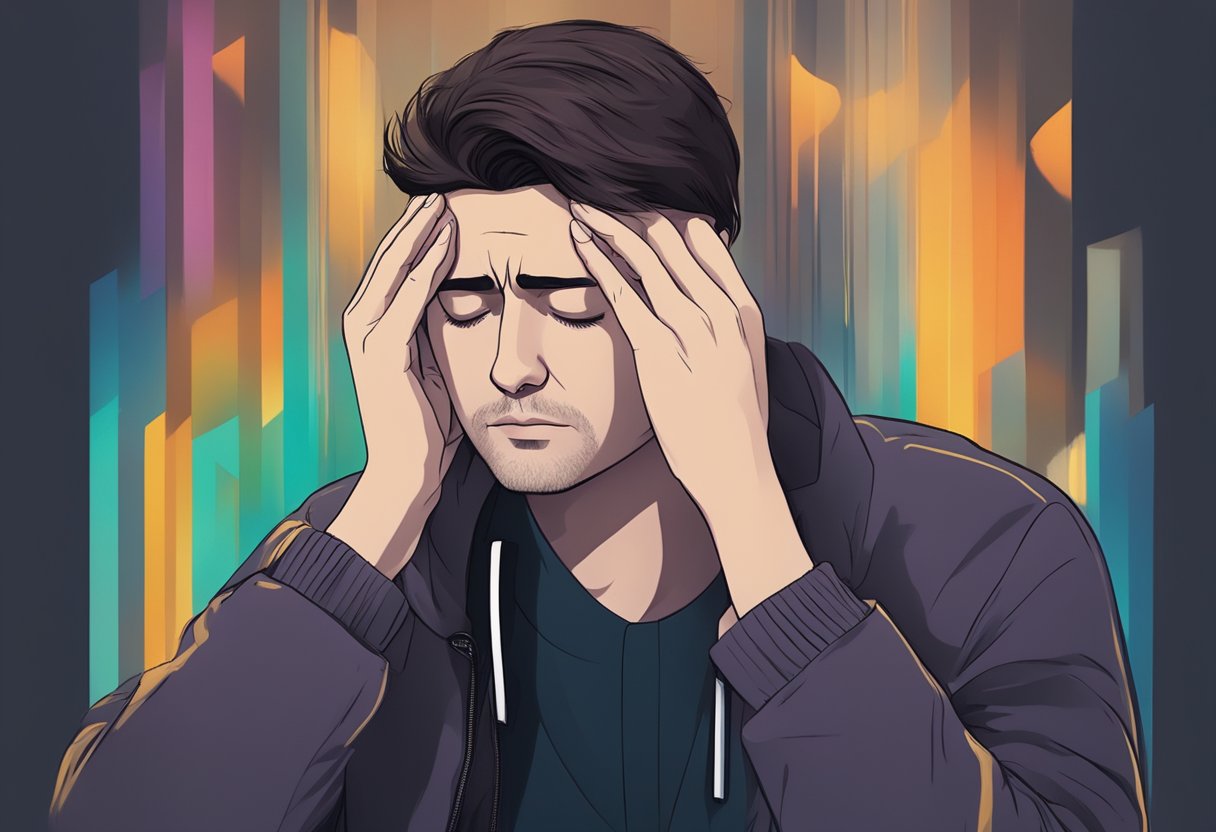
Understanding the Link Between Sleep and Headaches
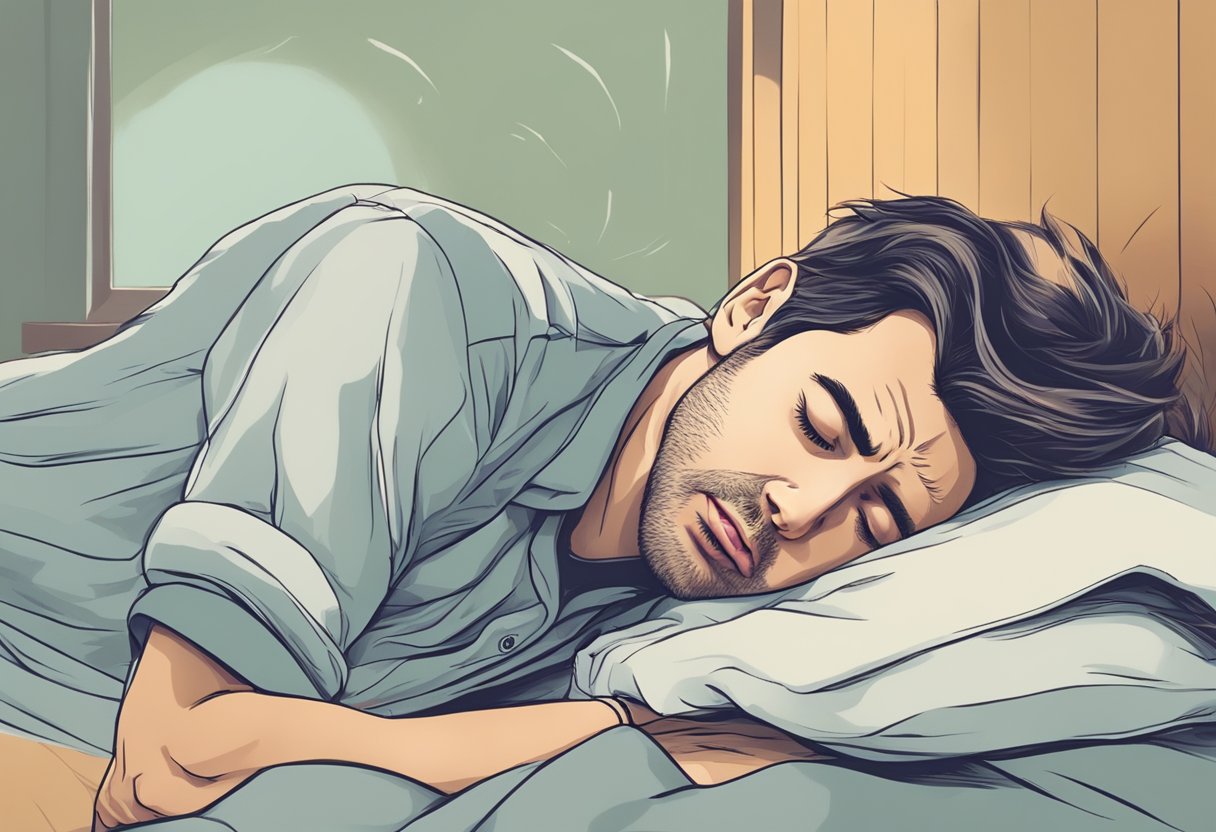
Sleep affects many brain functions that control pain and alertness. Disruptions in sleep lead to chemical and electrical changes in the brain, which often result in various types of headaches, especially when sleep patterns vary or rest is insufficient.
How Sleep Deprivation Affects the Brain
When someone lacks sufficient sleep, the brain loses its ability to regulate pain signals effectively. A drop in serotonin, a chemical that manages pain, heightens sensitivity to headache triggers.
Sleep deprivation also affects the hypothalamus, the region responsible for managing sleep and other bodily functions. This interference causes issues such as migraines or tension headaches. In addition, poor sleep raises cortisol levels, leading to increased stress and muscle tension, both of which contribute to headache pain.
These effects help explain why many people experience a headache from lack of sleep or a no sleep headache after staying awake too long or waking up frequently during the night.
Types of Headaches Associated With Poor Sleep
Poor sleep contributes to different types of headaches. The most common include:
- Tension headaches – Characterized by a tight, band-like pressure around the head, often related to stress caused by inadequate rest.
- Migraines – Triggered by lack of sleep, these involve intense throbbing pain, typically on one side of the head.
- Cluster headaches – Though less common, these severe headaches can worsen due to irregular sleep habits.
People dealing with insomnia or inconsistent sleep schedules tend to face a higher risk of developing these headaches. The likelihood often rises with the length and intensity of sleep disturbances.
The Role of Sleep Cycles in Headache Development
Sleep occurs in several stages, including light sleep, deep sleep, and REM sleep, each essential for brain repair and recovery. Interruptions during deep or REM sleep prevent the brain from restoring itself fully, which often leads to headache pain.
Both sleep deprivation and oversleeping can trigger headaches. Abrupt changes in sleep duration, such as sleeping in after a week of short nights, may disrupt normal sleep cycles and spark migraines, particularly in the morning.
Sticking to a consistent sleep schedule helps avoid these issues. Doing so lowers the risk of insomnia headache and other headaches linked to poor or inconsistent rest.
Can Lack of Sleep Cause Dizziness?
Lack of sleep can disrupt several bodily functions and affect balance and mental clarity. Dizziness usually results from changes in blood sugar levels, fatigue, or how the brain processes signals when sleep is insufficient.
Why Sleep Deprivation Leads to Dizziness
When a person does not get enough sleep, fatigue affects the vestibular system, which controls balance. This tiredness may cause a disconnected or “ditzy” feeling, which makes it difficult to focus or stay steady.
Sleep deprivation may also cause blood glucose levels to drop or fluctuate. Low blood glucose reduces oxygen supply to the brain, which can lead to spells of dizziness. Research supports the connection between poor sleep and dizziness-related disorders.
Headache and Dizziness: When to Be Concerned
Headaches and dizziness together can indicate problems beyond just lack of sleep. If dizziness lasts for hours, worsens, or appears with severe headache, vision problems, or weakness, it is important to seek medical advice.
Sleep deprivation can trigger different types of headaches, such as tension headaches or migraines. These may also intensify dizziness. Recognizing when symptoms become serious is crucial for proper care and treatment. While some dizziness caused by sleep loss improves with rest, persistent symptoms require evaluation by a doctor.
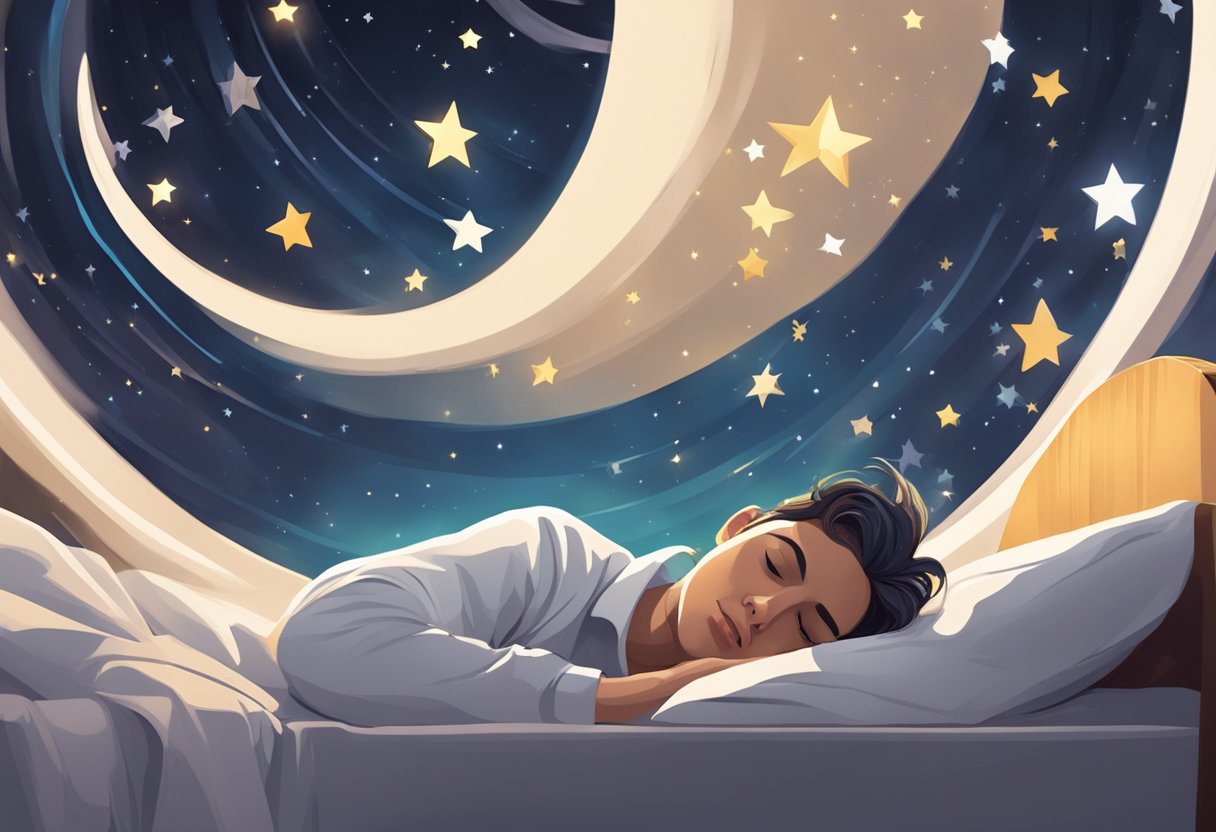
Symptoms and Signs of Headaches Caused by Lack of Sleep
Headaches from not getting enough sleep have specific features. They tend to involve certain pain areas and include symptoms such as tiredness or nausea. These signs help determine whether a headache relates to poor or interrupted sleep.
Headache Location and Sensation
A headache from lack of sleep often feels like a dull and steady pressure. It usually appears as a tension-type headache, which affects both sides of the head. Many describe the pain as tightness or heaviness around the forehead, temples, or the back of the neck.
Some people may experience a migraine due to lack of sleep, which brings throbbing pain on one side of the head. This pain tends to be more intense than a standard tension headache. Headaches from no sleep often build gradually as exhaustion continues. Although the pain location varies, it often centers on the temples or the front of the head. Activity or stress may intensify the pain. Knowing where the pain is located helps distinguish sleep-related headaches from other types.
Associated Symptoms: Fatigue, Nausea, and Light Sensitivity
Headaches caused by insufficient sleep often come with fatigue. A tired body lowers its pain threshold, which makes headaches feel more severe. Nausea or an upset stomach may also occur alongside the headache. Some individuals mention sensitivity to light or sound, especially when the headache shifts toward a migraine due to lack of sleep. Bright lights or loud environments tend to worsen the discomfort.
Other symptoms include trouble focusing and increased irritability. These often appear together, as they result from poor rest and the brain’s reaction to extended fatigue. Identifying these related signs supports the conclusion that the headache stems from sleep issues.
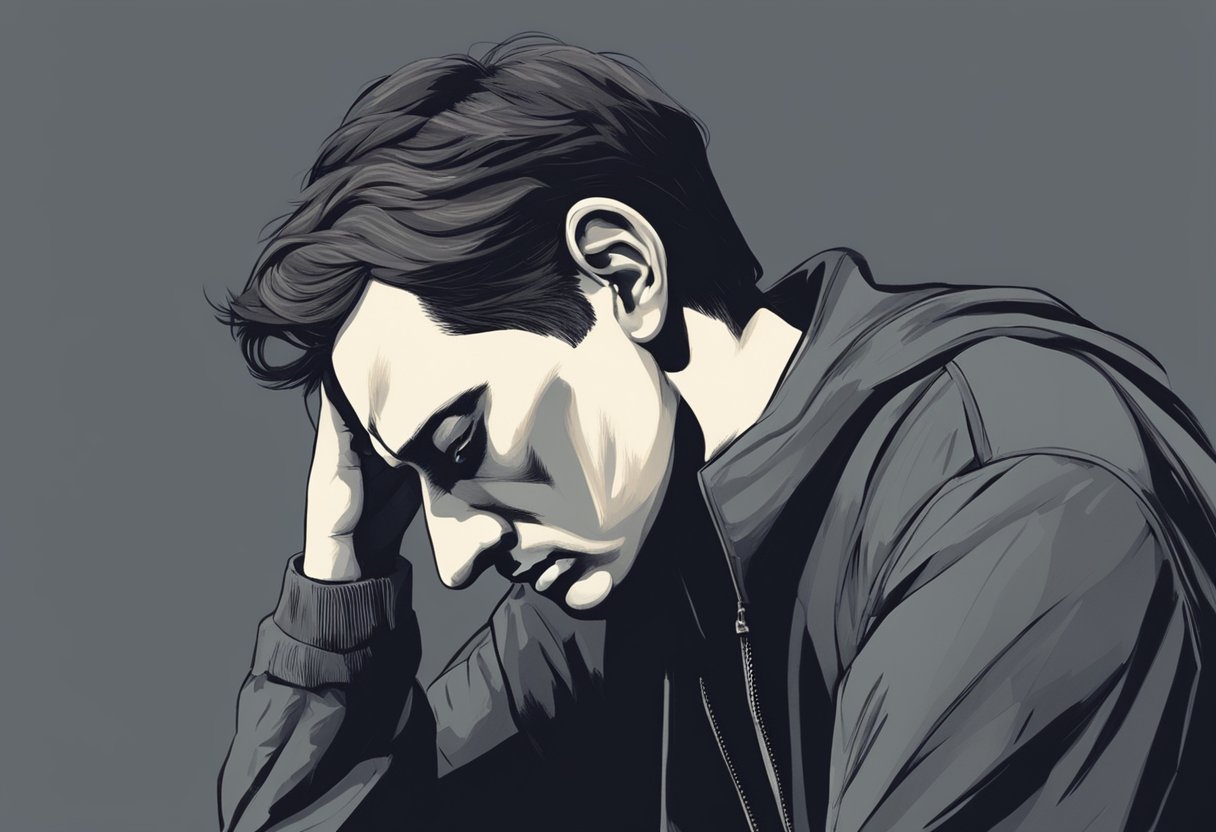
How Sleep Debt Triggers Headaches and Migraines
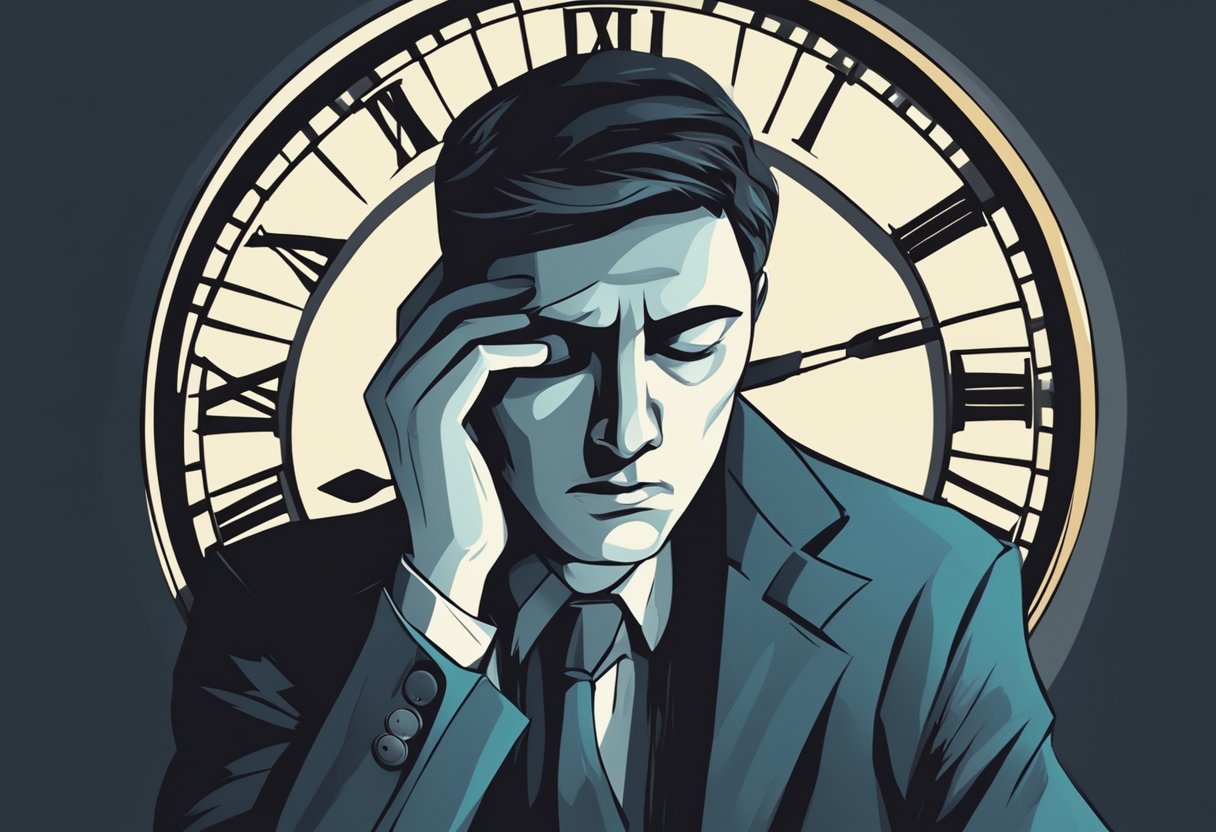
Not getting enough sleep builds up sleep debt, which affects both the brain and body in ways that lead to headaches and migraines. This occurs because sleep loss alters pain signals, disrupts brain chemicals, and influences various types of headaches people may experience.
Biological Mechanisms Involved
When someone lacks adequate sleep, several bodily changes increase the likelihood of headaches. Sleep deprivation disrupts the balance of pain-regulating chemicals, including serotonin. Lower serotonin levels heighten nerve sensitivity to pain, which can result in headaches or migraines. Sleep loss also interferes with the brain’s ability to manage stress and inflammation, which may trigger or worsen headache pain. In addition, sleep debt causes changes in cerebral blood vessels, leading to either dilation or constriction, both commonly associated with migraines.
Moreover, insufficient sleep weakens the body’s capacity to regulate pain, which can make headaches more severe or harder to relieve. This explains why sleep-related headaches and migraines tend to feel more intense than other types.
Differences Between Tension Headaches and Migraines
Headaches caused by inadequate sleep include both tension headaches and migraines, though their symptoms and causes differ. Tension headaches usually create a consistent and tight pain around the forehead or back of the head. They result from muscle tension in the head and neck, often due to stress or disrupted sleep.
Migraines, by contrast, come with more complex symptoms. These include intense, throbbing pain, usually on one side of the head, along with nausea, sensitivity to light, and sometimes visual disturbances. Sleep deprivation frequently triggers migraines because it more significantly affects the brain’s pain control systems.
Recognizing the difference helps individuals determine whether their sleep-related headache requires standard remedies or more specialized treatment. Tension headaches may improve with rest or over-the-counter medications, while migraines often call for targeted therapies.
Although sleep debt raises the risk of both types, its stronger impact on brain chemistry more directly connects it to migraines.
Common Causes of Sleep Deprivation
Sleep deprivation occurs for several clear reasons. Issues such as trouble falling asleep, mental stress, and an uncomfortable sleeping environment all contribute. These factors reduce sleep quality and may trigger headaches and dizziness.
Insomnia and Sleep Disorders
Insomnia ranks among the most common causes of insufficient rest. It prevents people from falling asleep, staying asleep, or both, which results in shorter sleep duration and lower sleep quality.
Other conditions like sleep apnea interrupt breathing throughout the night. These pauses cause frequent awakenings and reduce oxygen flow to the brain. Such disruptions often lead to morning headaches and dizziness.
Conditions like Restless Leg Syndrome or disruptions to the circadian rhythm also interfere with regular sleep. When rest is broken or shortened, the likelihood of experiencing headaches and dizziness increases.
Stress, Anxiety, and Lifestyle Factors
High levels of stress and anxiety keep the body alert at times it should be winding down. Overthinking or feeling overwhelmed keeps the mind active and makes restful sleep harder to achieve.
Certain habits, like irregular sleep schedules, high caffeine intake, screen time before bed, and shift work, also interfere with natural sleep patterns. These lifestyle choices not only reduce sleep but also heighten the body’s sensitivity to pain, making headaches more likely.
Chronic stress affects blood pressure and disrupts the nervous system’s balance, which can cause dizziness when paired with sleep loss. Establishing a consistent routine helps reduce these effects.
Poor Sleep Environment
A person’s sleeping environment affects sleep quality. Noise, light, uncomfortable bedding, and improper room temperature all interfere with restful sleep. Even minor disturbances can cause frequent waking or prevent the body from entering deep sleep. Poor sleep depth increases the chance of headaches and daytime dizziness.
Creating a quiet, dark, and calm space with supportive bedding improves sleep and helps prevent symptoms linked to lack of rest, such as headaches.
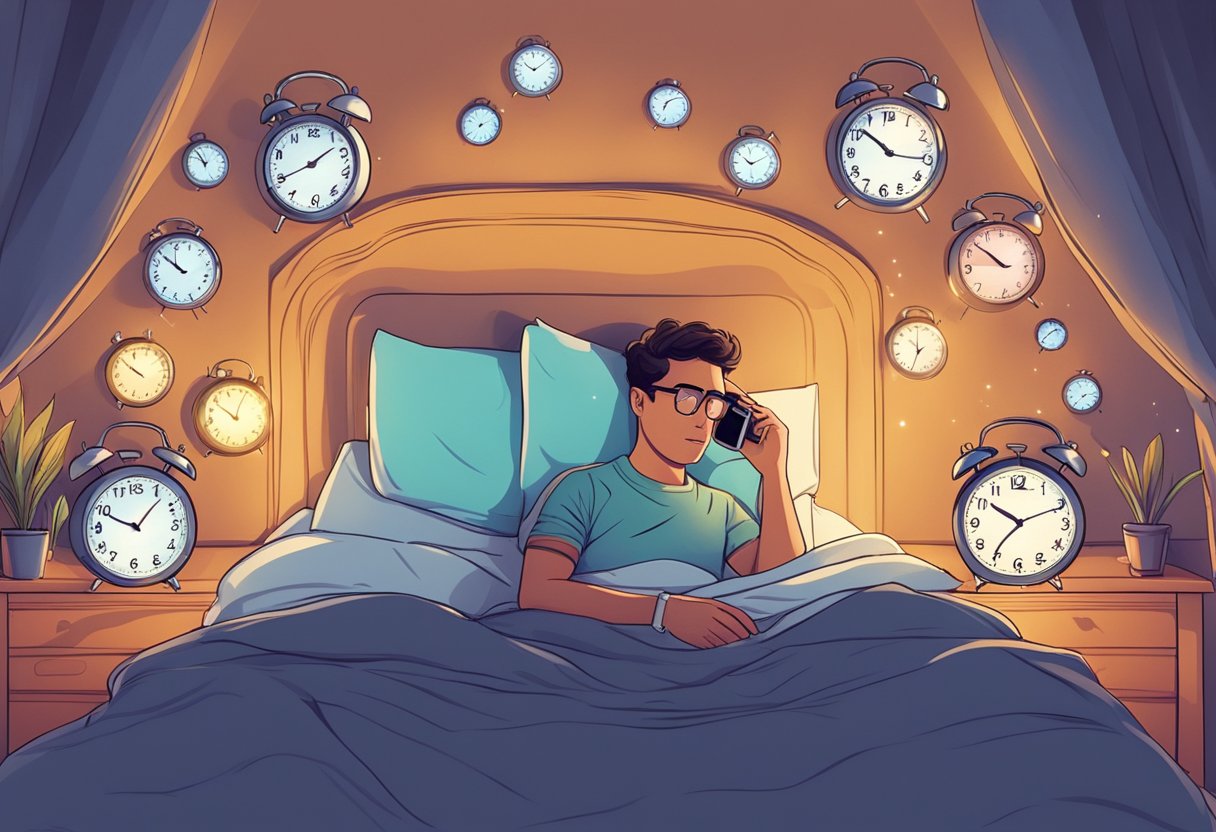
How to Avoid Headaches From Lack of Sleep
Consistent habits and emotional balance are important in preventing headaches associated with poor sleep. Minor shifts in routine and mindset help maintain healthy sleep patterns and lower the risk of headaches or dizziness.
Healthy Sleep Hygiene Habits
A consistent sleep schedule is essential. Going to bed and waking up at the same time every day supports the body’s internal clock. Sleeping late or keeping irregular hours raises the likelihood of headaches linked to sleep deprivation.
A sleep-friendly environment also helps. The bedroom should be cool, quiet, and dark. Avoid screens and bright lights for at least an hour before bedtime, since they interfere with melatonin production, a hormone that regulates sleep.
Other helpful tips include:
- Limiting caffeine and heavy meals in the evening.
- Exercising regularly, though not close to bedtime.
- Keeping naps under 20 minutes.
These habits promote deeper, more restful sleep and reduce the chances of waking up with a headache. More detailed advice is available about preventing headaches through healthy sleep hygiene.
Managing Stress and Anxiety for Better Sleep
Unchecked stress and anxiety often interfere with sleep and make headaches more likely. Taking steps to manage emotional health can improve sleep quality.
Practices such as deep breathing, meditation, or light yoga before bed calm the nervous system. Writing down thoughts earlier in the day also clears mental clutter. Avoiding evening stimulants like nicotine helps prevent alertness at bedtime. Cutting back on screen time and exposure to bright lights lowers cortisol levels, which reduces stress and supports smoother transitions into sleep. With stress in check, falling asleep becomes easier, and sleep-related headaches tend to decline.
For individuals who experience persistent anxiety, professional support from a therapist or healthcare provider may be necessary. Some benefit from relaxation therapy or counseling to break the cycle of stress and disrupted sleep.
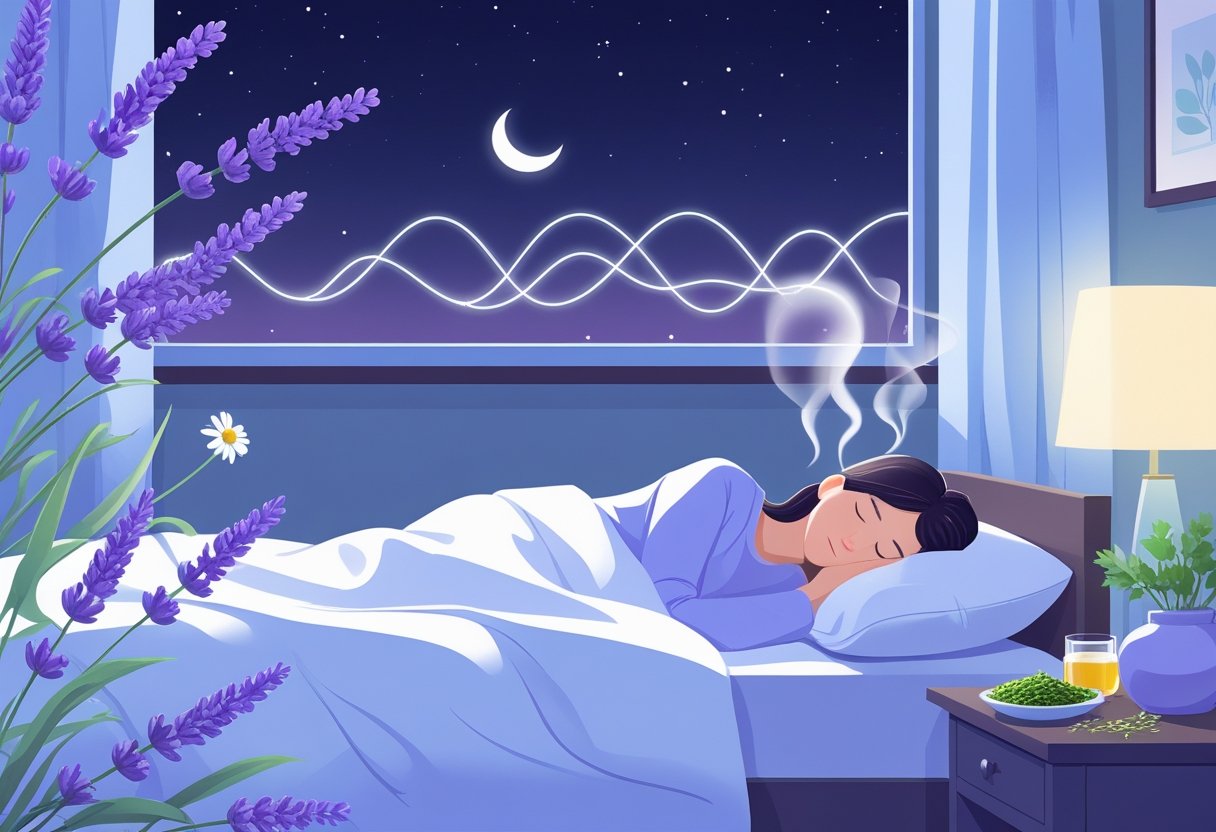
Treatment and Home Remedies
Lack of sleep often leads to headaches and dizziness, though several strategies can ease these symptoms quickly and help prevent them from returning. Simple steps at home, along with knowing when to seek medical attention, play a key role in managing these issues effectively.
Immediate Relief for Sleep-Related Headaches
To relieve a headache caused by lack of sleep, hydration remains essential. Drinking water reduces headache pain linked to dehydration. Applying a cold compress to the forehead or neck also helps ease tension and discomfort.
Rest plays a crucial role. A short nap resets the body and reduces headache symptoms. Over-the-counter pain relievers such as ibuprofen or acetaminophen may help, yet they should be used with caution.
Good sleep hygiene supports recovery. Avoid screens before bedtime, follow a consistent sleep schedule, and maintain a dark, cool sleep environment. These actions improve sleep quality and reduce the chance of future headaches. Home remedies like these often stop or lessen headaches related to fatigue.
When to See a Doctor
Frequent headaches or dizziness after sleep loss warrant a visit to a healthcare provider. Persistent or intense headaches may point to conditions beyond simple sleep deprivation.
Seek medical advice if symptoms include vision changes, confusion, or weakness, since these signs require a professional evaluation. If over-the-counter medications fail to relieve pain or dizziness, a doctor can provide more specific treatments for sleep-related headaches.
A healthcare professional may also explore underlying issues such as sleep disorders or migraines, which allows for a more targeted approach. Prompt medical care prevents symptoms from worsening and improves long-term well-being.
Long-Term Impact of Chronic Sleep Deprivation on Headache Risk
Chronic lack of sleep can lead to long-term health problems, especially by increasing the risk and severity of headaches. Recognizing these effects allows people to manage symptoms like headaches caused by poor sleep and take steps to prevent further complications.
Potential Health Complications
Chronic sleep deprivation increases the likelihood of developing frequent headaches, including migraines and tension-type headaches. A person with ongoing sleep loss may experience sleep-deprived headaches that worsen over time. These headaches can interfere with daily activities and heighten pain sensitivity.
In addition to headaches, long-term sleep loss may contribute to other health risks such as high blood pressure and type 2 diabetes. Cognitive decline can also occur, leading to memory problems and reduced concentration, which further amplify the effects of sleep-related headaches. These complications highlight how deeply ongoing sleep issues can affect overall health.
Addressing Persistent Sleep and Headache Issues
People dealing with sleep-deprived headaches should consider treatments that target both sleep quality and headache relief. Strategies include improving bedtime routines, limiting caffeine, managing stress, and reducing screen time in the evening. A medical evaluation can uncover underlying conditions that contribute to either problem.
Doctors may suggest cognitive-behavioral therapy for insomnia (CBT-I) or prescribe medications to treat chronic headaches linked to poor sleep. Keeping a journal to track sleep habits and headache patterns can help guide care. Addressing these issues early lowers the risk of long-term complications and supports better overall well-being.
How the Right Mattress Can Help Prevent Headaches and Dizziness from Poor Sleep

A mattress that supports good sleep can reduce headaches and dizziness caused by poor rest. Proper spinal alignment helps prevent neck and shoulder tension, which is often linked to headaches. Mattresses with pressure relief reduce stress on key areas of the body. This minimizes discomfort that can disrupt sleep, leading to improved rest.
Temperature control is also crucial. Some mattresses use materials designed to keep the body cool and prevent overheating. Overheating can disturb sleep and trigger headaches.
Adjustable beds offer additional benefits. Sleeping at a slight incline, like 45 degrees, can ease dizziness for some individuals by improving blood flow and reducing vertigo symptoms.
Here are key mattress features and their benefits:
- Firm support: Keeps the spine aligned.
- Pressure relief: Reduces pain in the neck and shoulders.
- Temperature control: Prevents overheating and night sweats.
- Adjustable base: Helps with dizziness and enhances comfort.
The Layla Memory Foam Mattress is perfect for preventing headaches and dizziness caused by poor sleep, due to its combination of pressure relief, temperature control, and proper spinal alignment.
Here’s why it fits:
- Pressure Relief and Support: The Layla’s copper-infused high-resilience memory foam adapts to your body, easing pressure points and preventing neck and shoulder tension, which often leads to headaches.
- Thermal Regulation: With copper-infused foam and zoned transition support, the mattress allows airflow and prevents overheating during the night. Overheating can disrupt sleep and contribute to headaches, so the Layla’s cooling properties are essential for a better rest.
- Flippable Firmness: The mattress has a soft side and a firm side, which lets you choose the support level that best maintains your spine’s alignment. This helps prevent neck and back tension, which can cause dizziness or discomfort.
By offering the right support and comfort, the Layla Memory Foam Mattress creates the optimal sleep environment, which can help prevent discomfort and ensure a more restful night’s sleep free from headaches and dizziness.
Frequently Asked Questions
Headaches and dizziness from lack of sleep often show specific signs. Treatment typically focuses on rest and hydration. Symptoms can include pain, nausea, and sensitivity to light. Understanding these details helps manage the effects effectively.

